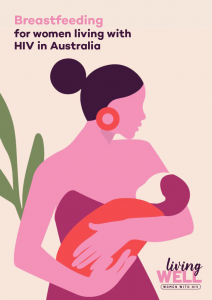News + Events
Updated WHO Breastfeeding guidelines delayed till early 2025
26/07/2024
WHO advised at AIDS2024 on a session on Breastfeeding for WLHIV that the update of the WHO Breastfeeding Guidance was now planned for release in early 2025: a year later than originally advised.
WHOs Meg Doherty, Director of the Global HIV, Hepatitis and Sexually Transmitted Infections Programmes, was admonished by panellists at a session on reproductive justice for WLHIV for WHOs inactivity on the guidance given the overwhelming evidence that shows the HIV transmission risk to infants from breastfeeding by women with HIV on ARVs and with a sustained undetectable viral load is virtually zero.
WHO has recommended breastfeeding for WLHIV in low to middle income countries for more than 10 years due to lack of access to formula and clean water. However, many countries globally still criminalise WLHIV if they breastfeed or WLHIV are only allowed if they adhere to overly stringent controls and monitoring, such as in Australia, the US, UK and Europe. Often HIV doctors in these high income countries also discourage WLHIV from breastfeeding as well.
Session speaker and panellists Dr Natasha Davies, a HIV clinician from South Africa who specialises in pregnancy and breastfeeding for WLHIV, advised the data shows the risk is so insignificant that the benefits of breastfeeding far outweigh the risk. As founder of INFORM+ (International Feeding Choices Forum for PLHIV), made up of researchers, clinicians and HIV community advocates, Natasha advised the group was in the final stages of developing a global guidance of breastfeeding to combat the ignorance and misinformation. While there was a call for more research to support breastfeeding for WLHIV, Natasha advised this data is already available and can be collected from the thousands if not millions of women with HIV, on ARVs, with an undetectable viral load who have breastfeed their babies without transmissions.
Meg Dougherty admitted at the session that WHO have overemphasised the risk of HIV transmission from breastfeeding.
INFORM+ will soon launch its website where regular updates will be posted. Watch out the link soon.
You can also read breastfeeding resources from Australia including the 2021 Breastfeeding for Women With HIV in Australia resource
NAPWHA-Living-Well-Breastfeeding-for-Women-living-with-HIV-Community-Resource-2021-web

